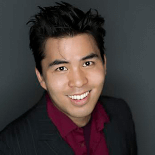The Mentoring Workshop 2023: RSVP

2022 Sanders Lecture: Trenton Merricks
“Arguments and Closure”
Thursday, October 13, 2022
Abstract:
Consider the Musk Argument:
1M. Elon Musk is one of the richest people in the world.
2M. If Elon Musk is one of the richest people in the world, then he did not die of a heart attack thirty seconds ago.
Therefore,
3M. Elon Musk did not die of a heart attack thirty seconds ago.
I know that the Musk Argument is valid. It can seem that I am justified in believing its premises. And it can seem that I am not justified in believing its conclusion. So it can seem that my “epistemic situation” with regard to the Musk Argument is a counterexample to the view that justification is closed under known entailment. So it can seem that the Musk Argument—along with other, more familiar arguments—threatens closure.
But I will argue that the Musk Argument is not a real threat to closure, and will argue for this without relying upon contextualism or contrastivism or other standard ways to block this sort of threat to closure. More precisely, I will argue that arguments relevantly like the Musk Argument are not a real threat to:
Closure Principle One: Suppose that you believe a claim because it is the conclusion of an argument, you know that that argument’s premises entail its conclusion, and you are justified in believing (or know) that that argument’s premises are all true. Then you are justified in believing (or know) that claim.
I will also argue for some other claims. Along the way we will encounter—and respond to—a serious threat to the philosophical practice of giving arguments to justify conclusions.
___________________________________

Trenton Merricks is Commonwealth Professor of Philosophy at the University of Virginia. He specializes in metaphysics. He also works in philosophy of religion, epistemology, philosophy of mind, and philosophy of language.
The Foundation funds two lectures, the Sanders Lecture given at a divisional meeting of the APA by a distinguished scholar on any topic of their choosing, and a lecture on the Philosophy of Religion at the Center for the Philosophy of Religion at Rutgers University. Learn more HERE.
News: The Mentoring Workshop: Application Now Open!
June 11-13, 2023
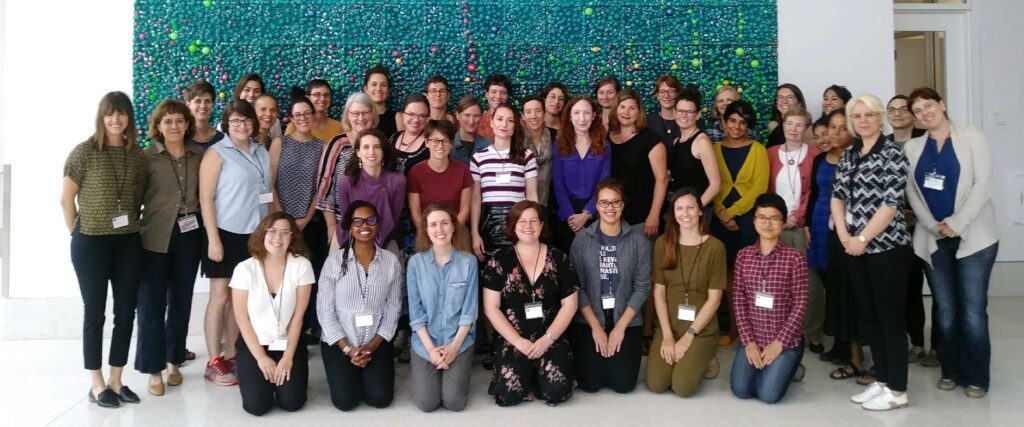
We are delighted to let you know that the 6th Biennial Mentoring Workshop in Philosophy will be held June 11th-13th, 2023 (please note the new dates), at the University of Missouri in Columbia, Missouri. We are also thrilled to announce that our 2023 Keynote Speaker will be Yolonda Wilson, of St Louis University. The Mentoring Workshop is hosted and supported by the generosity of the Mark Sanders Foundation.
This workshop seeks to address the ongoing underrepresentation of women and non-binary people in professional philosophy by building long-term mentoring relationships among senior and junior colleagues of both groups. Each participant will be assigned an eminent scholar in their field of research, to serve as mentor.
Mentees will be assigned a networking group consisting of a mentor and four fellow mentees working in similar fields. Each mentor will provide written feedback on the workshop papers of each mentee and will participate in discussions at the workshop. Mentees will take responsibility for providing written feedback on the papers of their group members and will serve as discussion leader and first reader for one paper and second reader for another. In the long term, group members will actively monitor the progress of each other’s careers, offering philosophical feedback and, in the case of the mentors, advice about professional development along the way. More information about the workshop, can be found on The Mentoring Workshop website.
At this point, we would like to encourage each of you to reach out to junior women and non-binary colleagues, to let them know about this extraordinary opportunity.
We would also like to invite securely employed and established scholars to consider supporting the important work of the Mentoring Workshop by making a donation. These funds will be directed towards our effort to lower costs for attendees as much as possible – a crucial consideration, given the precarity of many junior colleagues in these difficult times. You can contribute through the Marc Sanders foundation by selecting “A Particular Program” and then “The Mentoring Workshop” from the drop down menu here.
Any woman or non-binary person entering or holding a faculty position (pre-tenure, visiting, or contract) in Philosophy at a College or University or who is unaffiliated, within 10 years of completing their PhD, and continues to engage with professional philosophy can apply. We would especially like to encourage applications from members of groups underrepresented in Philosophy. Details of the application process can be found on our website. The deadline to apply is December 15, 2022.
Please don’t hesitate to reach out to any of the four Co-Directors (emails listed below) should you have any questions regarding the workshop.
Sincerely,
Carol Hay (carol_hay@uml.edu)
Alice MacLachlan (amacla@yorku.ca)
Nico Orlandi (norlandi@ucsc.edu)
Susanne Sreedhar (sreedhar@bu.edu)
—
The Mentoring Workshop is a project of the Women in Philosophy Task Force. It is currently funded by the Marc Sanders Foundation and has been funded in the past by grants from the American Philosophical Association and by the departments that have hosted each of the workshops, including the Department of Philosophy at University of Massachusetts Amherst, the Department of Philosophy at Boston University, the Department of Philosophy at The University of Kansas, and the Department of Philosophy at University of Utah.
We are very grateful to have funding for the 2023 Mentoring Workshop from the Dean of Humanities at University of California at Santa Cruz, the Dean of Fine Arts, Humanities, & Social Sciences at University of Massachusetts Lowell, the Department of Philosophy at York University, and the Florence G. Kline Fund. Special thanks go to our local hosts for this meeting: the Department of Philosophy at The University of Missouri and Professor Claire Horisk.

Report: Media Fellows – Longform Magazine Writing Workshop
June 3-5, 2022
The first weekend of June found the inaugural class of the Marc Sanders Foundation’s Media Fellows at the beautiful Cozen O’Connor office space, housed on the 55th floor of the World Trade Center in downtown New York. Here, ten fellows met for the last of three workshops this year—this one focused on longform magazine writing.
For three full days, our Longform Magazine Writing Fellows participated in an intensive workshop led by Joshua Rothman (The New Yorker), along with supplemental sessions facilitated by several high-profile writers and editors from prominent longform magazine publications: Larissa MacFarquhar (The New Yorker), Ross Andersen (The Atlantic), and Ismail Muhammad (The NYT Magazine).
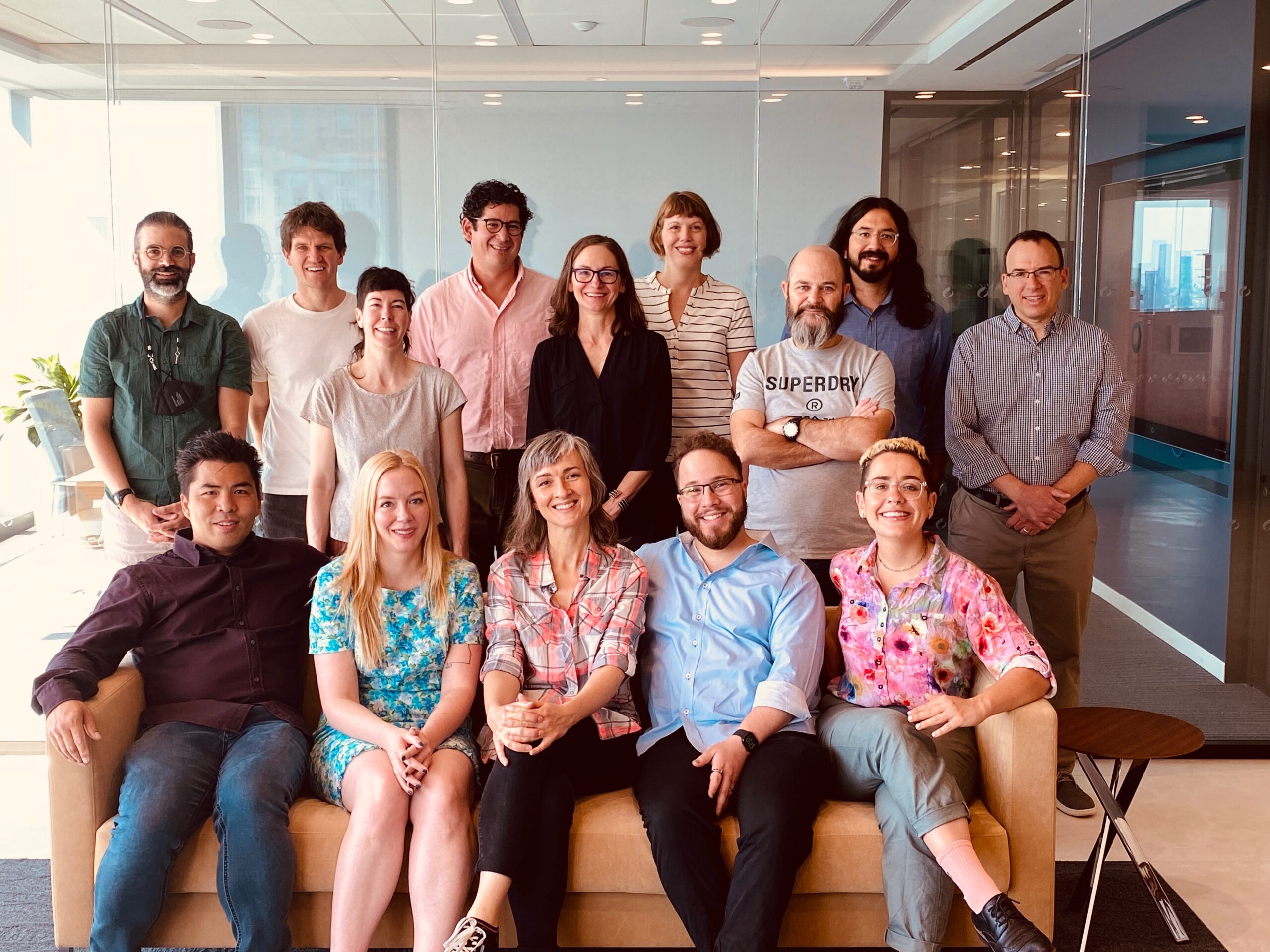
“The nuts and bolts are opaque. What does good writing sound like?”
Joshua Rothman, The New Yorker
This group of Media Fellows included philosophers of mind and cognitive science, war, biology, moral psychology, and aesthetics, among others. Arriving from academic institutions across the globe, our Fellows widely ranged in career stage, from recent post-graduates to distinguished professors and department chairs, all with different goals for their public-facing philosophical writing.
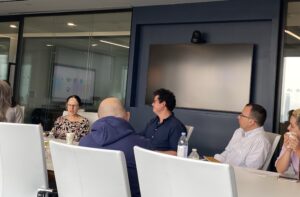
Over the course of three full days of workshopping, with our esteemed writers and editors at the helm, Fellows explored several facets of publishing philosophically driven magazine pieces, including how to write about people and ideas; the intricate anatomy of longform magazine articles; how to communicate complex ideas for a public audience; the editing and revision process from the backend of popular magazines; and how to write about art and culture from a philosophical perspective.
“Here’s an experiment: Stop describing people at all. You can’t actually conjure someone’s face, so what is the function? From using strictly dialogue, you get a sense of what it’s like to be in a room with them.”
Larissa MacFarquhar, The New Yorker
Each Fellow also had the opportunity to submit a pitch to Rothman for a longform piece—a pitch that might grapple with interesting, complex ideas while staying relevant and engaging to a public audience. He met with Fellows individually for thirty minutes to discuss and revise their pitches, offering nuts-and-bolts advice about how to effectively refine their pitches and ideas before submitting them to large publications.
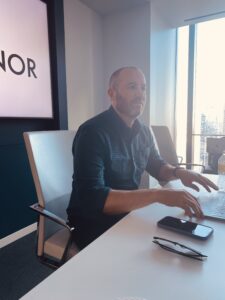
“Every story should satisfy two audiences at the same time.”
Ross Andersen, The Atlantic
With lots of practical advice and a toolbox of exciting editorial concepts to draw from (i.e. ledes, nut grafs, and through-lines), Media Fellows left feeling energized and inspired to begin the task at hand—turning complex philosophical ideas into audience-gripping articles and stories.
Fellows have already been successful in pitching pieces for The New Yorker and other magazines, like Slate. Even at this early stage, our Media Fellows will be published public intellectuals. We can’t wait to see what they do next.
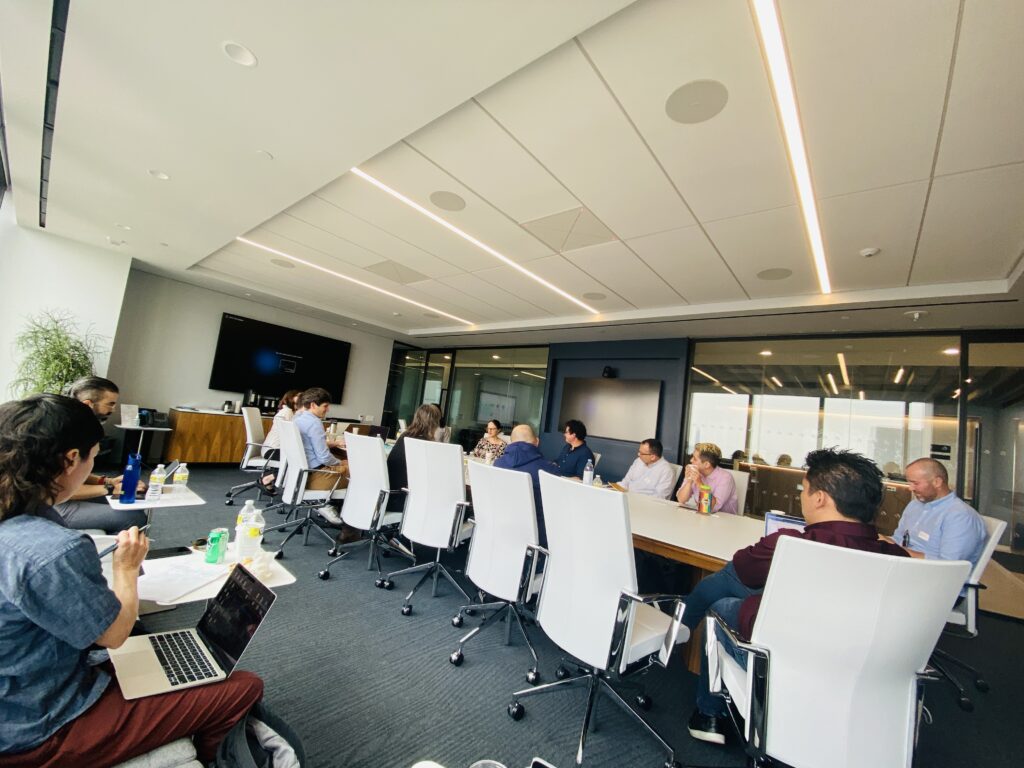
The Marc Sanders Media Fellows Program is generously co-sponsored by the Templeton Foundation.
NHSEB Update
2022 National Championship, April 8-10
24 of the best high school Ethics Bowl teams from across the country competed at the National Championship, April 8-10, 2022, at the University of North Carolina at Chapel Hill. These teams spent a beautiful spring weekend together thinking, talking, and working together on tough moral issues.
The results:
- National Champion: Princeton High School (NJ)
- Bob Ladenson Spirit of the Ethics Bowl Award: Clearwater Central Catholic High School (FL)
- Final Four: Princeton High School (NJ), University High School (CA), UWC-USA (NM), and Kent Place School (NJ).
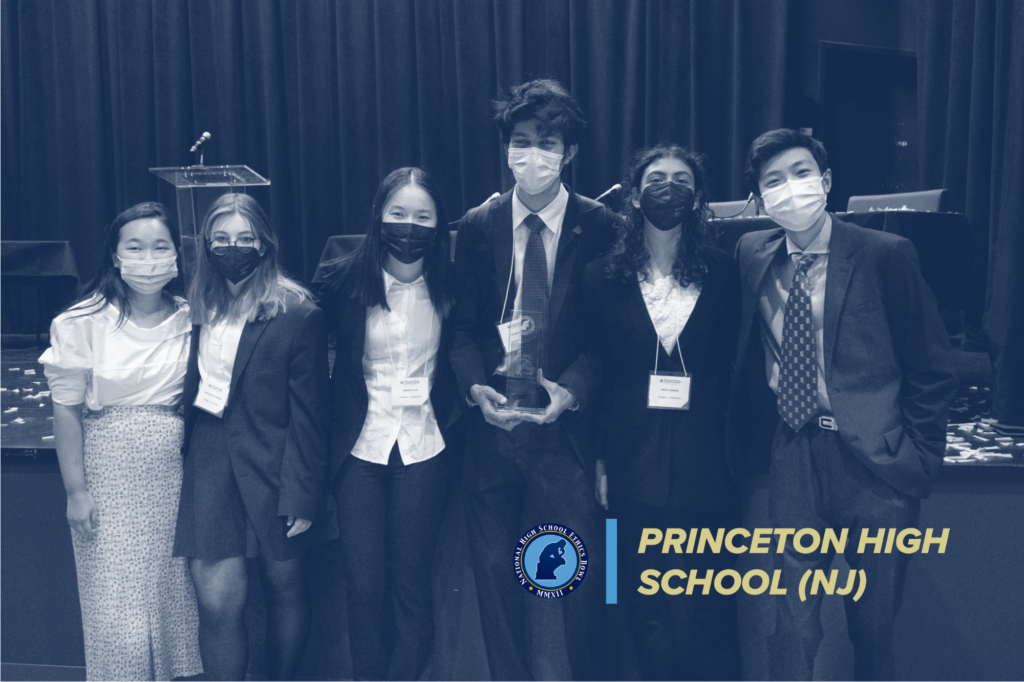
NHSEB Director Alex Richardson said of the 2022 National Championship: “It was a wonderful weekend together after such a long time apart. We accomplished a lot during the pandemic, but there has been much missing. Ethics Bowl really is better together, and our Championship weekend was the best possible return to form for our activity. It’s a really fitting end to a historic season, and a great note to wrap up on as we prepare for the 2022-2023 season—NHSEB’s tenth anniversary.”
For more information about the 2022 National Championship, the NHSEB program, and more, visit nhseb.unc.edu.
Report: Media Fellows – Op-Ed Workshop
April 15-16, 2022
On a chilly spring weekend in Vancouver, the inaugural class of the Marc Sanders Foundation’s Media Fellows met at the Pacific APA for the second of three workshops. For two full days, our Op-Ed Fellows participated in an intensive workshop with James Ryerson of the New York Times. Ryerson has been publishing philosophers and public intellectuals for over 20 years at the New York Times and has been leading a series of Templeton-funded workshops for academics.
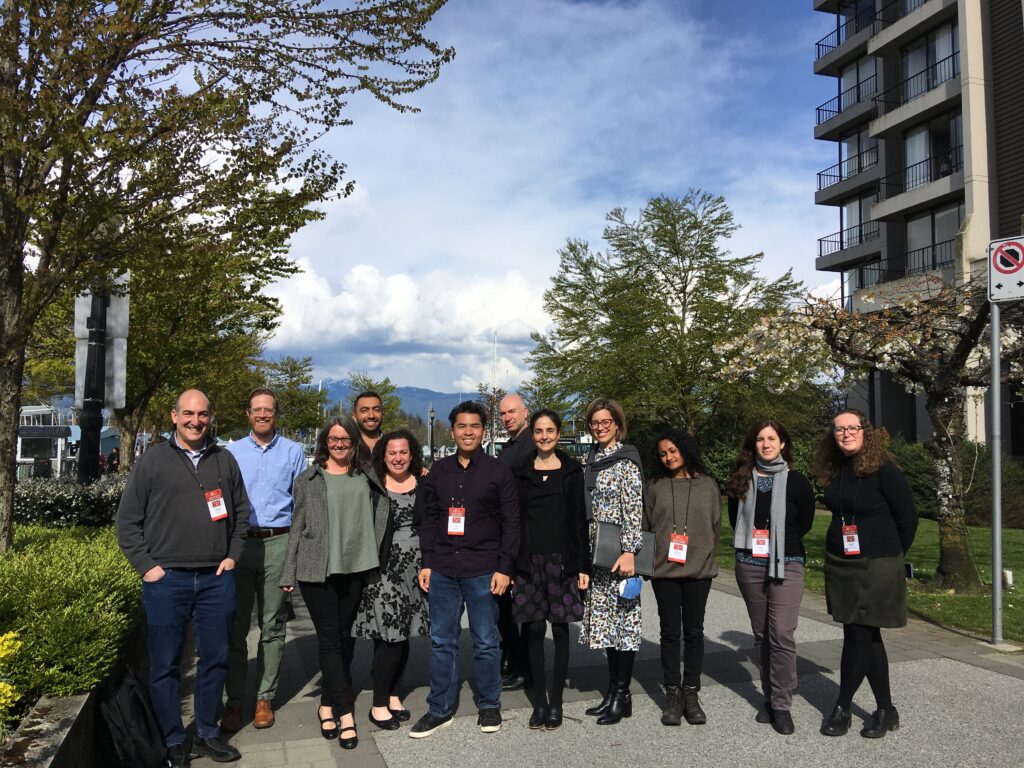
Our class of Media Fellows included philosophers of physics, epistemologists, virtue-ethicists, and philosophers of psychiatry, among others. Fellows ranged in career stage, from recent post-graduates to distinguished professors, and traveled from all over the country–some even internationally–all with different ambitions. Some are looking to make contributions to public discourse in psychiatry, while others aim to become participants in public life more locally.
Ryerson had each Fellow write and submit an op-ed piece for everyone at the workshop to read together. Ryerson then offered his critique of each piece and assigned roughly twenty op-ed articles he had commissioned and edited over the past decade, including work from Anthony Appiah, Lisa Feldman Barrett, Nathan Ballantyne, and others of note.
Over the course of two days, and one lovely dinner overlooking the harbor, Fellows learned about the “three beat” structure of op-ed introductions and how actively hands-on a newspaper opinion editor is, compared to academic journal editors. Each Fellow had the opportunity to have their draft openly critiqued, pitch two ideas for future op-eds, and participate in a 20-minute, one-on-one session with Ryerson.
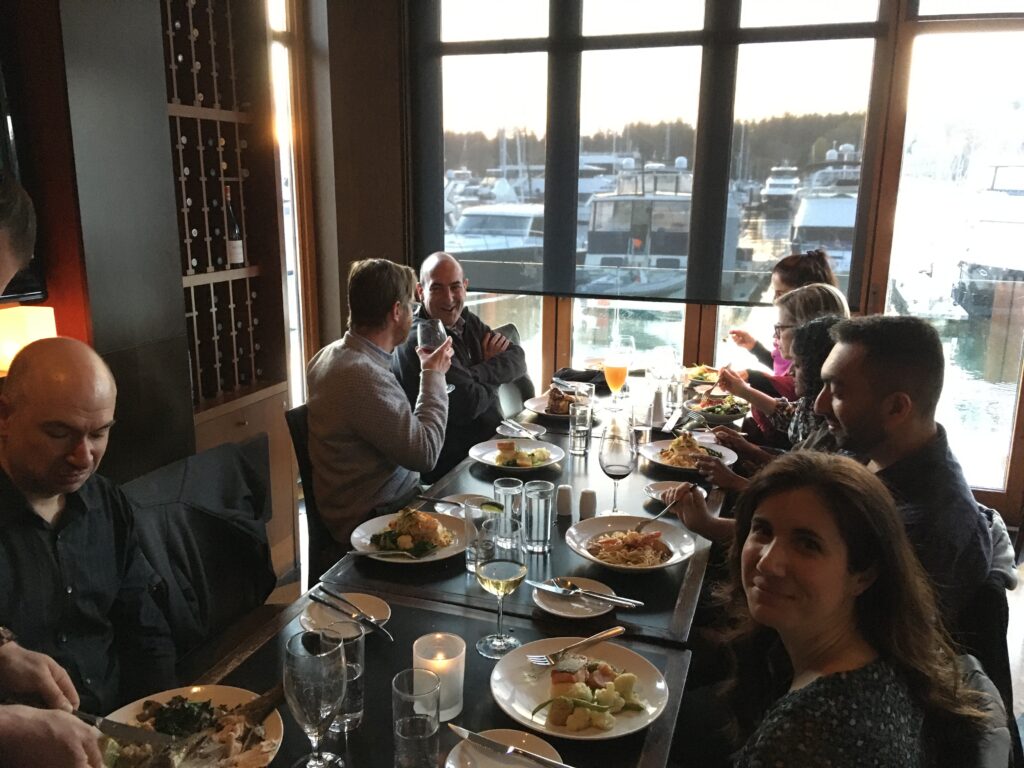
In addition to Ryerson’s facilitation, MSF’s own Barry Lam and UC Riverside’s Myisha Cherry spoke to our Fellows about the path from op-ed writing to academic-crossover or trade book publishing, offering tips on securing an agent and how to get the best deal from a publishing house.
Media Fellows left highly motivated to begin their work, with some even deciding to take a sabbatical next year to dedicate themselves exclusively to public writing.
Our third and final Media Fellows workshop on long-form magazine writing will be June 3rd-5th in New York City.
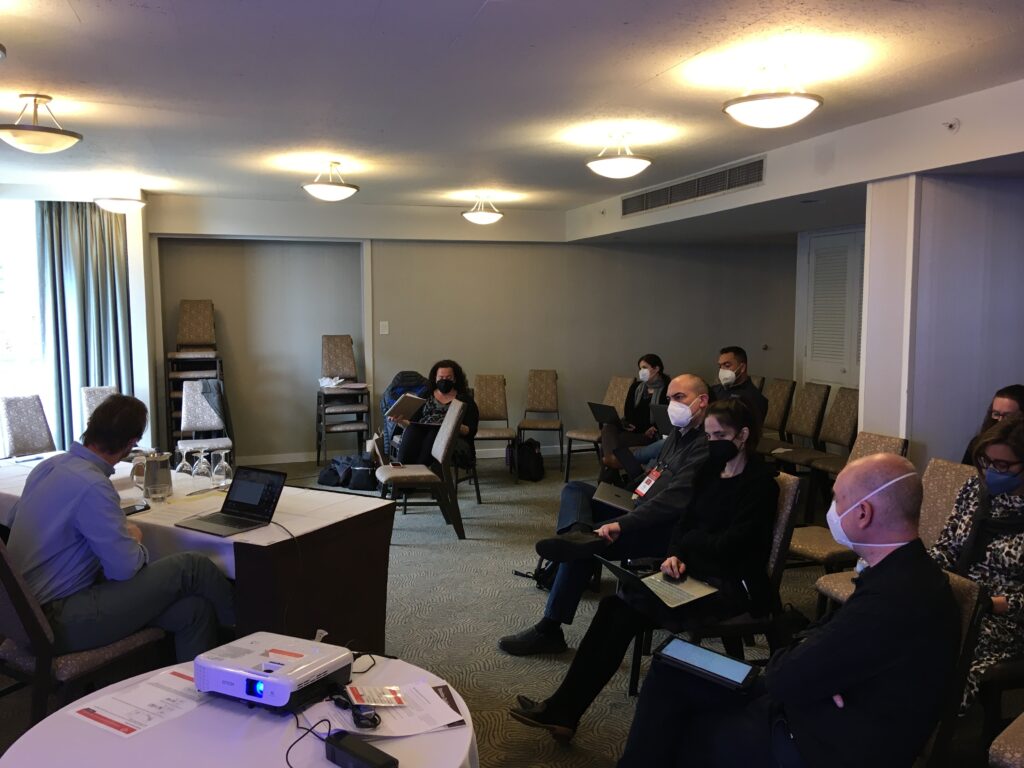
The Marc Sanders Media Fellows Program is generously co-sponsored by the Templeton Foundation.
Report: Media Fellows – Podcasting
March 11-13, 2022
The inaugural class of the Marc Sanders Foundation Media Fellows met in Washington D.C. for three full days, March 11-13, for a podcasting workshop. The workshop was run by Barry Lam, host and executive producer of Hi-Phi Nation; Alix Spiegel, founding and current senior producer of This American Life and founder and inaugural host of Invisibilia at NPR; and Alison MacAdam, 15-year producer for NPR’s All Things Considered and former NPR training director, currently a freelance editor for both public and private podcasting series.
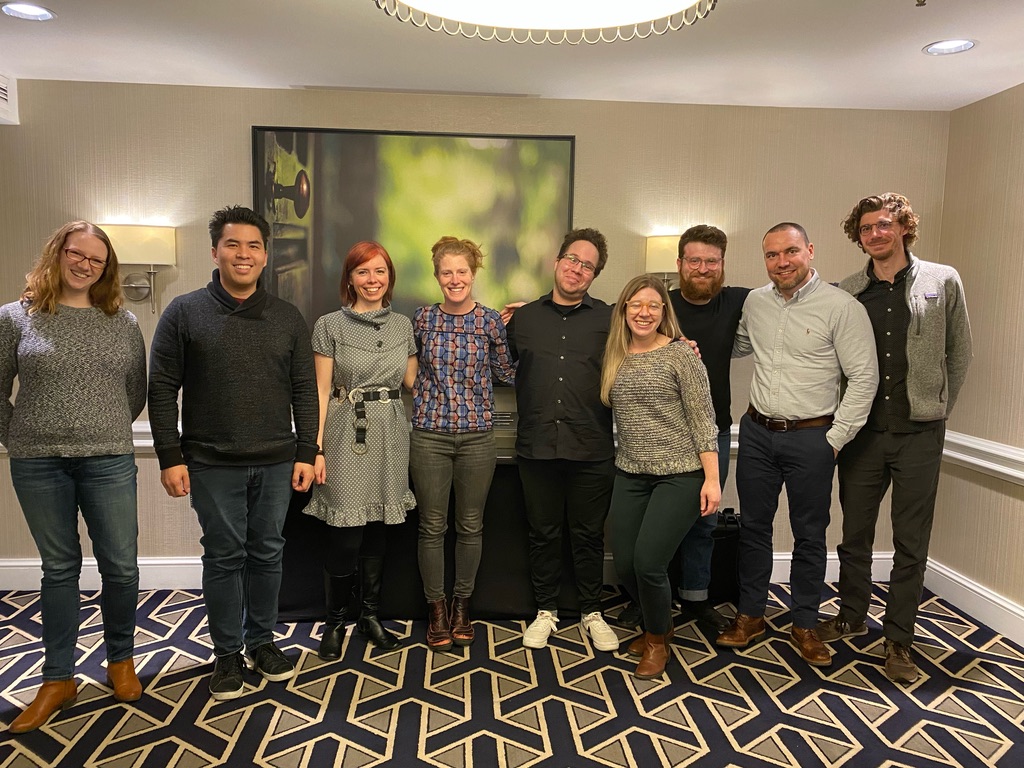
The inaugural class of MSF Media Fellows spent the weekend learning about various facets of writing and speaking to both peers and non-peers in audio form. They examined the genre of the “explainer” piece on podcasts and radio series, comparing it to the ways academics talk to reporters. These exercises illustrated the difference between a well-written, well-reported segment about an academic matter and simply talking about the matter as a professor might. They investigated narrative structure and sound design to create an emotional tone and a sense of temporal movement absent from most academic presentations. They also explored the basics of audio editing in digital audio workstations and the process of creating and introducing characters to stories to make podcasts more than just about ideas.
Alix Spiegel joined the group to talk about the creation of Invisibilia while she was a science and psychology reporter at NPR for ten years. Spiegel explained the process of seeking out and reporting a story—reading/hearing pitches, conducting pre-interviews, developing imaginary story outlines, and deciding on the kinds of arcs that do or don’t work. Throughout the day, she heard pitches from all of the fellows, gave feedback, took notes, and invited everyone to send her pitches at This American Life.
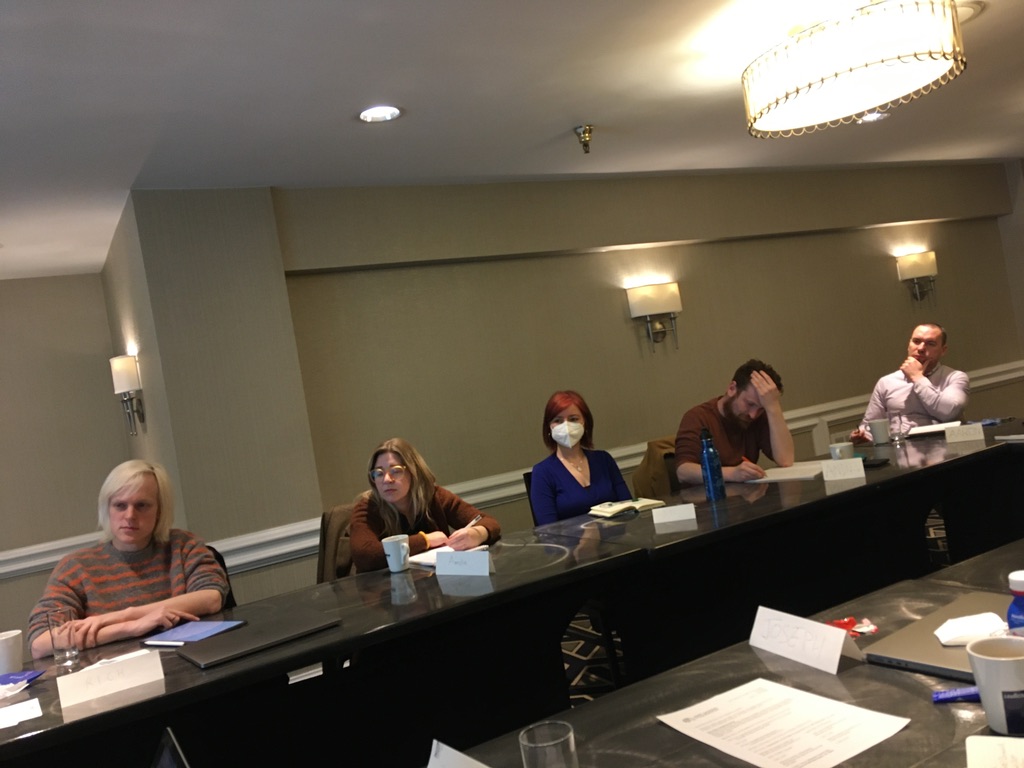
Alison MacAdam shared a variety of openings that many types of podcasts have (i.e. interview, panel discussion, limited documentary series, etc.). The first two minutes of a podcast, she emphasized, determines whether someone will stick with the remainder of the episode, and subsequently the remainder of that series. MacAdam walked the Fellows through the kind of information the first two minutes ought to contain, templates for podcast production, and the importance of defined roles for each co-host. MacAdam then led the group in a feedback exercise, listening to every fellow’s audio submission and giving feedback on writing, presentation, and production value.
Joseph Fridman, who has extensive experience as a liaison between academics and the media industry, attended the workshop. He will be working with our fellows, helping them place their work into shows. All of the MSF Media Fellows left the workshop feeling inspired, having gleaned skills that make them well-prepared to shape and create podcast stories for a broad audience.
The Marc Sanders Media Fellows Program is generously co-sponsored by the Templeton Foundation.
